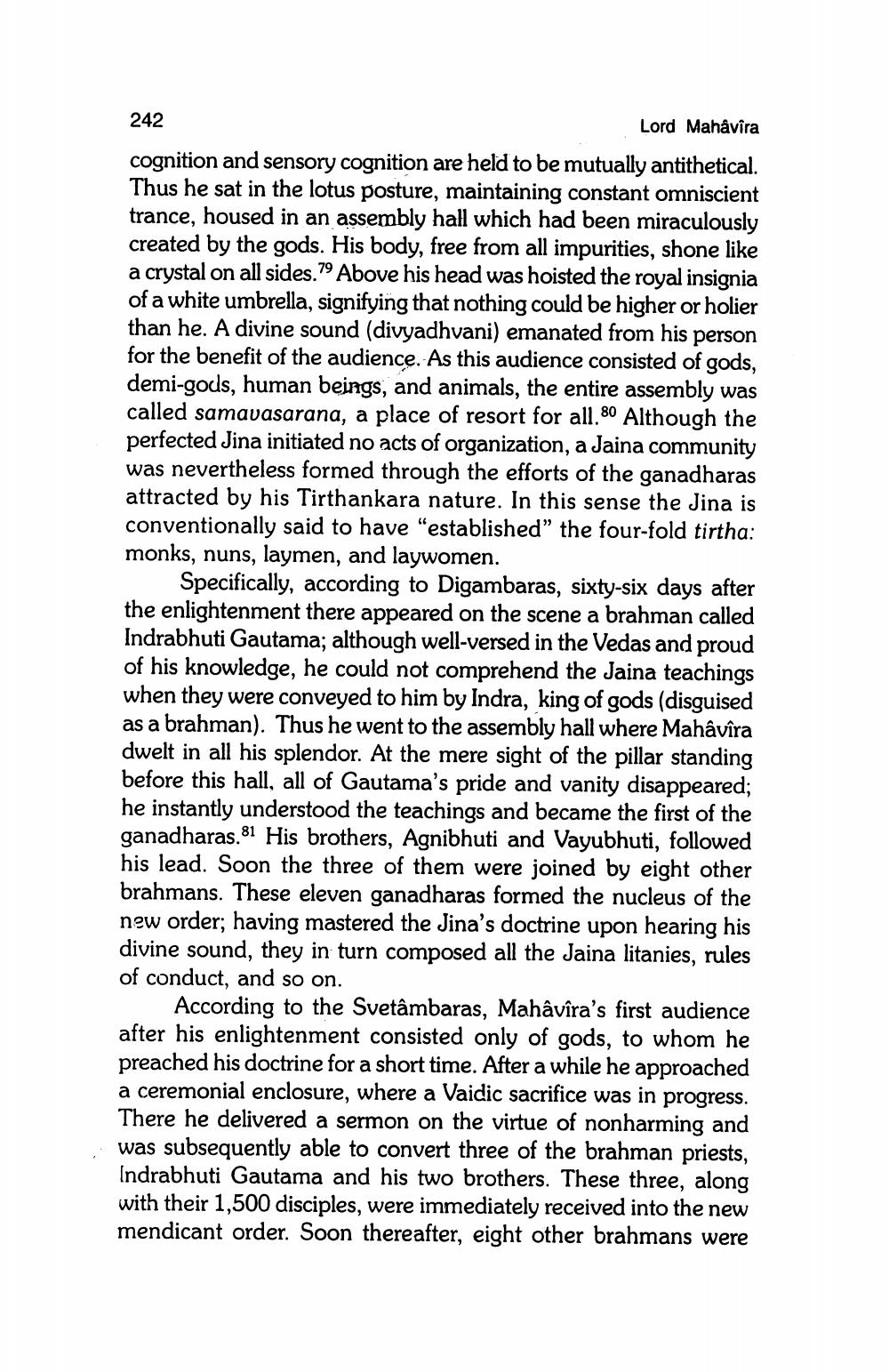________________
242
Lord Mahavira cognition and sensory cognition are held to be mutually antithetical. Thus he sat in the lotus posture, maintaining constant omniscient trance, housed in an assembly hall which had been miraculously created by the gods. His body, free from all impurities, shone like a crystal on all sides. 79 Above his head was hoisted the royal insignia of a white umbrella, signifying that nothing could be higher or holier than he. A divine sound (divyadhvani) emanated from his person for the benefit of the audience. As this audience consisted of gods, demi-gous, human beings, and animals, the entire assembly was called samavasarana, a place of resort for all.80 Although the perfected Jina initiated no acts of organization, a Jaina community was nevertheless formed through the efforts of the ganadharas attracted by his Tirthankara nature. In this sense the Jina is conventionally said to have "established" the four-fold tirtha: monks, nuns, laymen, and laywomen.
Specifically, according to Digambaras, sixty-six days after the enlightenment there appeared on the scene a brahman called Indrabhuti Gautama; although well-versed in the Vedas and proud of his knowledge, he could not comprehend the Jaina teachings when they were conveyed to him by Indra, king of gods (disguised as a brahman). Thus he went to the assembly hall where Mahâvîra dwelt in all his splendor. At the mere sight of the pillar standing before this hall, all of Gautama's pride and vanity disappeared; he instantly understood the teachings and became the first of the ganadharas. 81 His brothers, Agnibhuti and Vayubhuti, followed his lead. Soon the three of them were joined by eight other brahmans. These eleven ganadharas formed the nucleus of the new order; having mastered the Jina's doctrine upon hearing his divine sound, they in turn composed all the Jaina litanies, rules of conduct, and so on.
According to the Svetâmbaras, Mahâvîra's first audience after his enlightenment consisted only of gods, to whom he preached his doctrine for a short time. After a while he approached a ceremonial enclosure, where a Vaidic sacrifice was in progress. There he delivered a sermon on the virtue of nonharming and was subsequently able to convert three of the brahman priests, Indrabhuti Gautama and his two brothers. These three, along with their 1,500 disciples, were immediately received into the new mendicant order. Soon thereafter, eight other brahmans were




